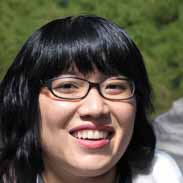Educational Psychology Constructivism – Flashcards
Unlock all answers in this set
Unlock answersquestion
Learning Sciences
answer
A new interdisciplinary science of learning has emerged, based on research in psychology, education, computer science, philosophy, sociology, anthropology, neuroscience, and other fields of learning.
question
Functional Magnetic Resonance Imaging (fMRI)
answer
An MRI is an imaging technique that uses a magnetic field along with radio waves and a computer to create detailed pictures of the inside of the body. A functional MRI uses the MRI to measure the tiny changes that take place in the brain during brain activity.
question
Constructivism
answer
View that emphasizes the active role of the learner in building understanding and making sense of information.
question
First Wave Constructivism
answer
A focus on the individual and psychological sources of knowing, as in Piaget's theory.
question
Radical Constructivism
answer
Knowledge is assumed to be the individual's construction; it cannot be judged right or wrong.
question
Appropriation
answer
Being able to internalize or take for yourself knowledge and skills developed in interaction with others or with cultural tools.
question
Second Wave Constructivism
answer
A focus on the social and cultural sources of knowing, as in Vygotsky's theory.
question
Constructionism
answer
How public knowledge in disciplines such as science, math, economics, or history is constructed.
question
Community of Practice
answer
Social situation or context in which ideas are judged useful or true.
question
Situated Learning
answer
The idea that skills and knowledge are tied to the situations in which they were learned and difficult to apply in new settings.
question
Complex Learning Environments
answer
Problems and learning situations that mimic the ill-structured nature of real life.
question
Social Negotiation
answer
Aspect of learning process that relies on collaboration with others and respect for different perspectives.
question
Intersubjective Attitude
answer
A commitment to build shared meaning with others by finding common ground and exchanging interpretations.
question
Multiple Representations of Context
answer
Considering problems using various analogies, examples, and metaphors.
question
Spiral Curriculum
answer
Bruner's design for teaching that introduces the fundamental structure of all subjects early in the school years, the revisits the subjects in more and more complex forms over time.
question
Inquiry Learning
answer
Approach in which the teacher presents a puzzling situation and students solve the problem by gathering data and testing their conclusions.
question
Problem-Based Learning
answer
Methods that provide students with realistic problems that don't necessarily have "right" answers.
question
Anchored Instruction
answer
A type of problem-based learning that uses a complex, interesting situation as an anchor for learning.
question
Cognitive Apprenticeship
answer
A relationship in which a less experienced learner acquires knowledge and skills under the guidance of an expert.
question
Reciprocal Teaching
answer
Is designed to help students understand and think deeply about what they read.
question
Collaboration
answer
A philosophy about how to relate to others- how to learn and work.
question
Cooperation
answer
A way of working with others to attains a shared goal.
question
Cooperative Learning
answer
Situations where elaboration, interpretation, explanation, and argumentation are integral to the activity of the group and where learning is supported by other individuals.
question
Reciprocal Questioning
answer
Students work in pairs or toads to ask and answer questions about lesson material.
question
Jigsaw Classroom
answer
A learning process in which each student is part of a group and each group member is assigned part of the material to be learned by the whole group. Students become "expert" on their piece and then teach it to the others in their group.
question
Structured Controversy
answer
Students work in pairs within their four-person cooperative groups to research a particular controversy.
question
Fostering Communities of Learners (FCL)
answer
A system of interacting activities that results in a self-consciously active and reflective learning environment and uses a research, share, and perform learning cycle.
question
Service Learning
answer
Combines academic learning with personal and social development for secondary and college students.
question
Digital Divide
answer
A split between access to technologies between those who fall into high versus low socioeconomic status.



